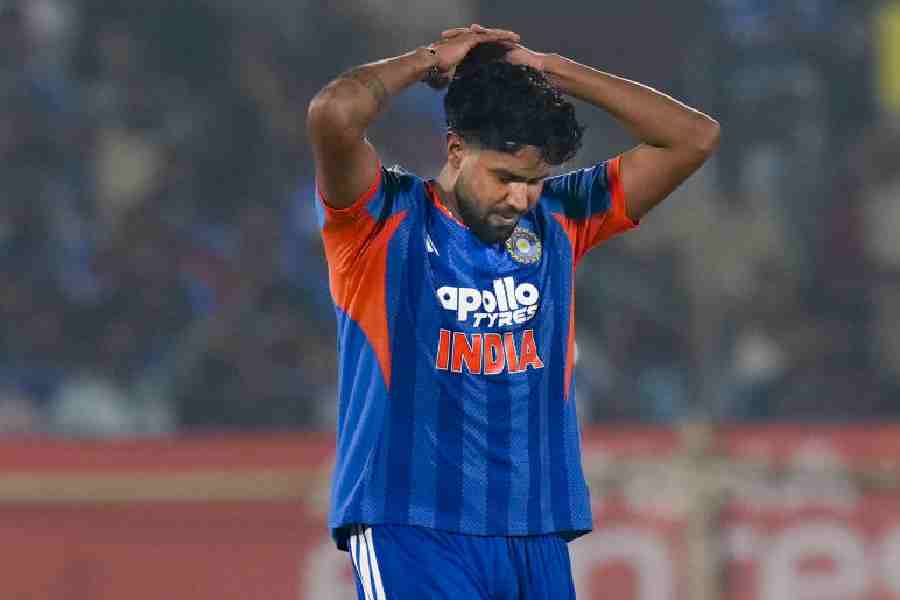Karsan Ghavri’s coaching stint came to a perfect end when Saurashtra won the Ranji Trophy crown by virtue of a first innings lead versus Bengal in the final here.
It was an ideal gift from the likes of captain Jaydev Unadkat, Cheteshwar Pujara and Aarpit Vasavada for the former India left-arm medium pacer, who relished each and every moment with the Saurashtra side that focuses primarily on team effort.
As coach, his job was to formulate strategies and game plan, concentrating on his man-management skills. Ghavri still recalls his time as a player, and the ups and downs he went through during his playing career.
He is, thus, very particular about avoiding over-scrutiny of a player if the latter is going through a rough patch. Instead, coaches and managers should keep encouraging a player so that he is at his best not just in a game, but during nets as well, he feels.
“When you are playing, the tempo and mindset are different along with your game plan. When you are the coach or the manager of a side, you have to be outside the boundary line and the entire experience is different then.
“But the game goes on. As coaches, we have to chalk out a game plan for each team and the players. The coaches also have to make sure the players execute the strategy. In other words, the job is mainly about man management,” Ghavri told The Telegraph.
Elaborating on the aspect of man management, Ghavri said: “It’s about giving the players more confidence, inspiring them as much as possible and bringing out their best on the field. Even during nets, inspiring a player is very important.
“If somebody is making mistakes, criticise him. But the criticism should be healthy and constructive. At the same time, you can’t criticise the same player every day. You should rather aim to help the player improve. That’s what a coach should do.
“This is what I have done during my stints as coach of Mumbai, Bengal and Saurashtra. Like on the final day, I told them to focus on the first hour of play. I told them, ‘If you can get Anustup Majumdar out, you can win the game.’ And that’s what happened,” he added.
The outgoing Saurashtra coach was also effusive in his praise for left-arm quick Unadkat, who finished as the top wicket-taker of this Ranji Trophy with 67 wickets from 10 matches. According to Ghavri, the addition of a left-arm pacer lends more variation to India’s bowling attack, especially in the game’s traditional format.
“He (Unadkat) is accurate, can give good slower balls and bouncers, and in the spells that he has bowled, he has been absolutely remarkable. With this kind of performance, I feel the Indian selectors should look into his case.
“In Test cricket, he is capable of bowling long spells. He can fire with both the new and old balls. He can be effective even in the third spell and is capable of firing at any time of the day. So he is ideal for the longer version.
“In a series against a team like, say Sri Lanka, if the BCCI gives rest to someone like (Mohammed) Shami or (Jasprit) Bumrah, Unadkat can be given a chance. There’s fire in his belly,” Ghavri pointed out.
Ghavri finished with 109 wickets from 39 Tests. Those figures may not be great, but he has no regrets or complaints after having played seven years for India. But he did dismiss a stalwart like Greg Chappell during his international career.
“I made my debut at the historic Eden Gardens (in December 1974, versus the West Indies), which itself is an honour. Thereafter, I have tried to do my bit in the matches that I have played and I am happy with my effort.
“I also played in the World Cups — 1975 and 1979. I am really honoured for the experience I have had,” he said.
Done with coaching, Ghavri is keen on taking up a mentor’s role.
“I will be there for the Irani Trophy when the fresh dates for the competition is announced. That’s the contract I have with Saurashtra.
“But after that, if given an offer, I will look for a mentor’s job. And yeah, if I am offered to mentor Bengal, I’ll certainly be glad to accept it.”











